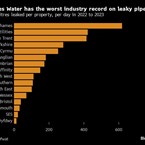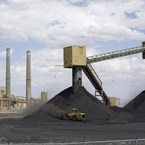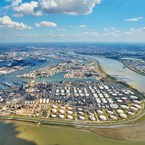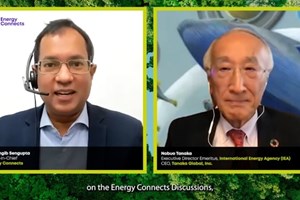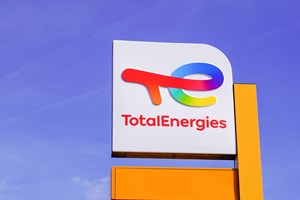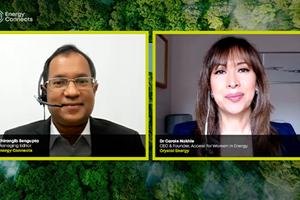ESG momentum in the Middle East
ESG (Environmental, Social and Governance) standards have become a polarising topic. Some believe ESG standards will save both the planet and the souls of corporations; others that the extra compliance burden outweighs their value. Regardless of their mission, it is clear that ESG standards are rapidly becoming an area of focus in the Middle East.
The decarbonisation challenge has made the environmental aspect of ESG central to countries with large oil and gas sectors. The countries in the region, GCC countries in particular, are on the right track. Saudi Arabia and Bahrain have pledged to achieve net zero by 2060, and the UAE has committed to net zero carbon emissions by 2050. Middle Eastern national oil companies are now translating these targets into action. Aramco is collaborating with its supply chain to reduce greenhouse gas (GHG) emissions and ADNOC aims to decrease its GHG intensity by 25 percent by 2030.
The social element of ESG is concerned with a corporation’s relations with its employees, investors, lenders and communities. Social values were challenged during the COVID pandemic and the companies operating in the Middle East responded. According to a PwC 2021 survey, 84 percent of the region’s family businesses retained as many staff members as possible, 56 percent took action to support the local community and 45 percent provided financial support or loans to their employees.
A number of governance standards, such as the UAE’s Securities and Commodities Authority’s Corporate Governance Code, have already been adopted and more are likely to follow.
The commercial and strategic impact of ESG on Middle East companies has been widely discussed. In this article, we examine the key ESG legal trends impacting energy companies worldwide which are likely to be acutely felt in the region. We consider: (1) due diligence on supply chains; (2) ESG guidance, codes and regulations; and (3) the potential for litigation related to ESG. In each case, we explain how companies can anticipate and mitigate the potential risks.
Due diligence on supply chains
Many countries are adopting due diligence rules to limit ESG risks in corporate supply chains. While the majority are not mandatory, regulatory requirements are accelerating so companies need to start preparing now.
The energy industry is high risk. Companies have implemented stringent HSE policies for some time, but issues such as protection of human rights and combating modern slavery may not have been as high on the radar. We are now seeing that change – spearheaded by IOCs and NOCs, recent oil and gas contracts typically include comprehensive clauses recognising supporting respect for human rights.
These clauses mean little without further action. To minimize or prevent human rights violations or environmental-related risks, contractual provisions must be used in conjunction with supply chain due diligence. Companies should:
- Carry out regular risk analysis of supply chains: this should include all direct and indirect suppliers throughout the chain in order to be effective. For example, smaller companies lower in the chain may not always apply the ESG standards expected from the end procurer
- Act on the findings of due diligence by working directly with the supply chain to address any deficiencies and prevent violations
- Formulate policies and standard clauses to be included in contracts, and create expectations that ESG standards must be upheld
- Create a mechanism for reporting and investigating potential violations of policies
- Keep an audit record of the steps taken to assess and mitigate risks and violations that have been identified
ESG guidance, codes and regulations
Most of the Middle East stock exchanges and regulators have issued guidance on reporting sustainability information. In the UAE, the publication of ESG disclosure guidelines by the Abu Dhabi Securities Exchange and Dubai Financial Market indicate an overall trend towards greater disclosure and transparency.
The “gold standard” for sustainability reporting is set by the Global Report Initiative (GRI). Across the Middle East, the adoption of GRI reporting by companies has been patchy. GRI reporting is currently only mandatory for companies listed in the UAE and there is still a lack of clarity around enforcement. In practice, GRI reporting in the region is difficult: there are few sustainability specialists and the task cannot be delegated to a financial auditor of the company, as that would impair the auditor’s independence. The GRI does not itself certify that a company’s sustainability report complies with GRI standards. The market will address the demand for third-party assurance for ESG reporting in the coming years, but currently it is an expensive challenge.
In anticipation of regional regulators introducing new sustainable finance frameworks and wider ESG integration and reporting, companies must take steps to embed ESG into their culture. To this end, energy companies should:
- Allocate responsibility for ESG reporting: the board is responsible for the organization’s key decisions, however, allocating responsibility for ESG reporting to specific staff (such as the CEO or COO) can sharpen focus and ensure that sufficient resources are allocated to the task
- Analyse risks and opportunities: the final report should satisfy stakeholders as well as regulators
- Identify key issues relevant to the company: carbon emissions, green finance and human rights are likely to be relevant in the oil and gas sector
- Develop strategy and add value: for example, if the target is cutting down emissions or reducing waste, there should be both key performance indicators and a clear strategy on how they will be achieved
Potential for ESG related litigation
Companies operating in the energy sector are likely to be heavily impacted by ESG-related litigation. Legal proceedings related to ESG issues are increasingly common in North America and Europe. Examples of claims being brought include: an action against a university pension fund for failures of the fund’s directors “to create a credible plan for disinvestment from fossil fuel investments” (UK), a class action claim against an IOC to reduce its CO2 emissions as well as those of its suppliers and customers (the Netherlands), and claims that a utility company failed to take steps to prevent wildfires, contrary to commitments it made in public statements about the issue (the USA).
ESG litigation can take many forms, but seems most likely in relation to operations,
governance arrangements, and corporate reporting and disclosures. Claims may be advanced against an organization’s directors and officers based on corporate duties related to the best interests of investors.
Whilst we are not aware of any claims in the Middle East against directors, they are theoretically possible in some jurisdictions. In the UAE, for example, the Commercial Companies Law (Federal Law No. 2 of 2015, as amended) regulates the duties, obligations and liabilities of directors of onshore companies. Claims may be brought for breach of such duties or for negligence.
Companies should proactively take steps to limit their and their directors’ exposure to ESG-related claims. The due diligence mentioned above will help, and some other useful measures include:
- undertaking a feasibility study to see whether corporate structures and operations have the necessary resources and expertise to handle any ESG matters that may arise
- ensuring that all ESG targets are prepared with baseline data and that any reporting against achieving these targets can be supported by hard evidence
- verifying the accuracy of any ESG disclosures and being careful about language: for example, using aspirational language where appropriate and updating investors when specific goals have not been achieved by the target date
- ensuring that boards understand the risks of ESG and considering how the board may defend any claims for breach of their duties
- involving legal counsel in planning to ensure ESG compliance with reporting and disclosure requirements
- in the event of a breach, involving legal counsel in crisis management and the resolution of any ESG-related disputes
- ensuring robust governance and accountability at board, management and operational level and integrating material ESG factors into strategic decision-making: ESG should not be considered a tick-the-box exercise
- considering insurance coverage
Building momentum
Momentum is building around the Middle East’s ESG agenda for several reasons. Regional governments are diversifying away from oil and gas and establishing sustainability initiatives. There are also increasing international and local requirements for ESG disclosure and reporting. Companies must respond to regulation, but recent sustainable financing deals in the region show that there are also opportunities for companies who commit to ESG goals and have clear implementation strategies. Robust ESG standards show investors that they are well-positioned to mitigate sustainability risks and to capture opportunities. Such companies may also fare better in attracting younger workers, who are increasingly concerned about their employer’s ethics.
While the risk of enforcement action by regional regulators might be low currently, companies are well advised to stay ahead of the curve. ESG momentum is building and access to capital and financing may well depend upon it, as banks and stock exchanges develop more vigorous ESG requirements.
KEEPING THE ENERGY INDUSTRY CONNECTED
Subscribe to our newsletter and get the best of Energy Connects directly to your inbox each week.
By subscribing, you agree to the processing of your personal data by dmg events as described in the Privacy Policy.
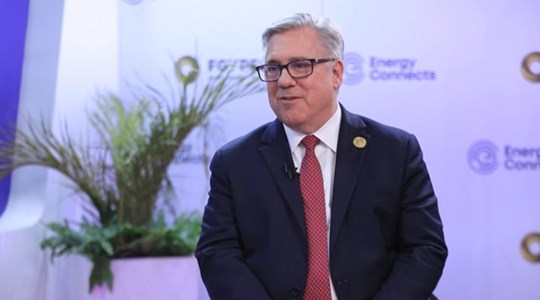
Chevron helping drive Egypt’s journey to become Africa’s energy powerhouse
Mar 11, 2024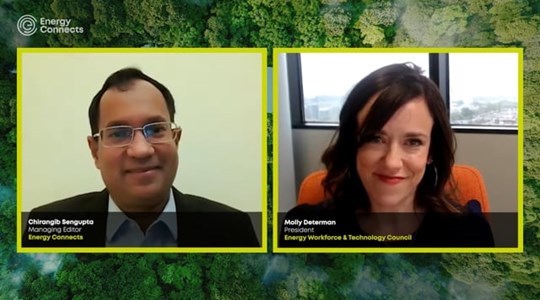
Energy Workforce helps bridge the gender gap in the industry
Mar 08, 2024
EGYPES Climatech champion on a mission to combat climate change
Mar 04, 2024
Fertiglobe’s sustainability journey
Feb 29, 2024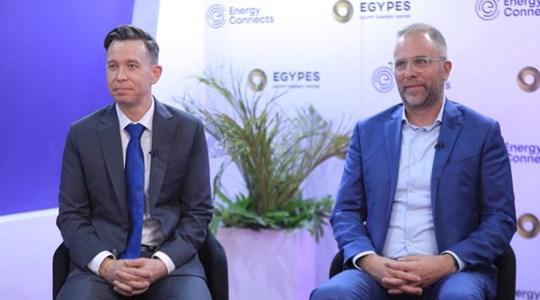
P&O Maritime Logistics pushing for greater decarbonisation
Feb 27, 2024
India’s energy sector presents lucrative opportunities for global companies
Jan 31, 2024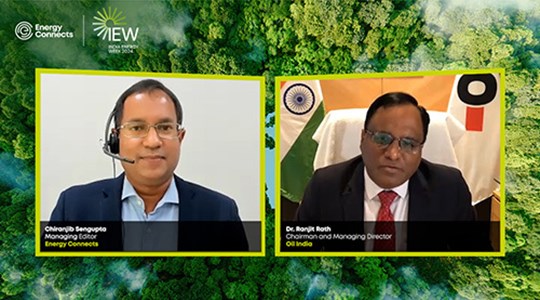
Oil India charts the course to ambitious energy growth
Jan 25, 2024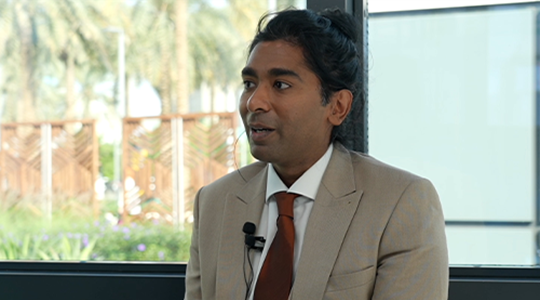
Maritime sector is stepping up to the challenges of decarbonisation
Jan 08, 2024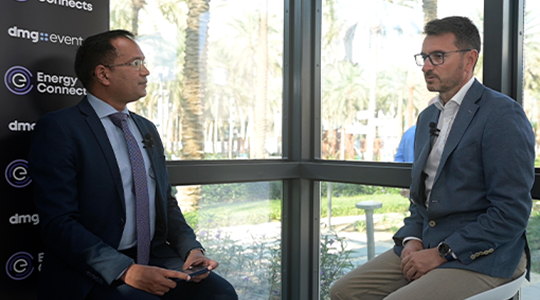
COP28: turning transition challenges into clean energy opportunities
Dec 08, 2023
Why 2030 is a pivotal year in the race to net zero
Oct 26, 2023Partner content

Ebara Elliott Energy offers a range of products for a sustainable energy economy

Essar outlines how its CBM contribution is bolstering for India’s energy landscape

Positioning petrochemicals market in the emerging circular economy

Navigating markets and creating significant regional opportunities with Spectrum












